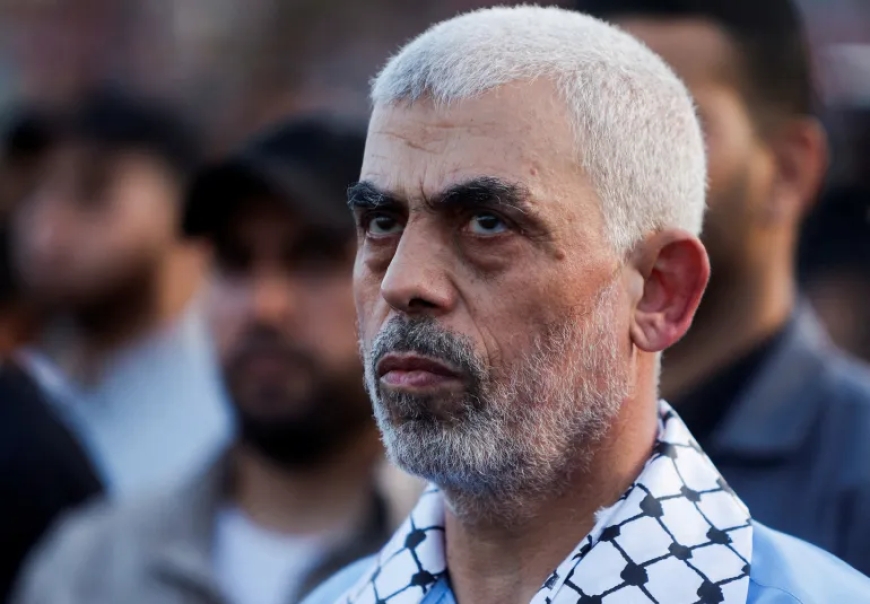Yahya Sinwar's Killing: Still Another Step in the Tragic Double Standard of the West
Waves of indignation and resistance have erupted throughout the Palestinian lands following the recent killing of Yahya Sinwar, chairman of Hamas' Political Bureau, at the hands of Israeli soldiers on October 17, 2024.

Waves of indignation and resistance have erupted throughout the Palestinian lands following the recent killing of Yahya Sinwar, chairman of Hamas' Political Bureau, at the hands of Israeli soldiers on October 17, 2024. Deputy chairman of the Hamas Political Bureau Khalil al-Hayya verified the death and instantly called it a "terrorist act by the Zionist Israeli government." While the larger battle in Gaza, originating in a century of colonialism, displacement, and apartheid, grinds on, the world is now intently observing as yet another important member of Hamas is killed.
Beyond the layers of regional conflict, though, is a far more unsettling story—the moral double standard of Western political posture, whereby one side's violence is justified while the other is stigmatized. Yahya Sinwar dies amid one of the most explosive times in the Israeli-Palestinian conflict, when Gaza is once more under constant assault. It's shocking how little attention the continuous Israeli occupation gets in the same breath, even when the West is fast to criticize the Palestinian leadership and classify any type of violent resistance as terrorism.
Let's not sugar-coat anything here—Yahya Sinwar was a divisive person sometimes referred to as the "mastermind" behind Hamas' aggressive approach. Sinwar became among the most powerful leaders of Hamas after spent years in Israeli jail and finally being freed under a prisoner swap agreement. Western media presents him as an extremeist, a violent troublemaker. To Palestinians, however, he is considered as part of a long history of leaders opposing Israeli control, emulating luminaries like founder of Hamas, Ahmad Yassin. The contradictory way the West presents these leaders is instructive: while Palestinian leaders like Sinwar are reduced to "terrorists," Israeli officials are often hailed as advocates of democracy.
With Sinwar dead, Hamas has surely gained confidence. Al-Hayya's words taken after the murder vividly depict resistance. Remaining on the front lines, Sinwar, who kept fighting after his release from jail, gave his life for the Palestinian cause, he emphasizes. Al-Hayya also said that Sinwar's memory is intrinsically tied to the martyrs who came before him and that his death will only serve to intensify Hamas' determination. The West, especially the United States and Europe, keeps Israel unconditionally backed, allowing the Israeli government to operate with impunity in a conflict that, for many, more resembles an occupation than a justifiable defense.
The so-called world community has consistently failed to significantly break out from this almost endless cycle of bloodshed. The West repeatedly relies on clichés on Israel's "right to self-defense," thereby conveniently ignoring the clear disparity of strength. Particularly in Gaza, Israel's excessive reaction to any imagined danger kills hundreds of people dead and maimed. While daily brutality of occupation, illegal settlements, and the siege on Gaza are accepted, Hamas's acts are still seen as terrorism.
Since Sinwar is not only a loss of a leader but also another victim for Hamas, therefore igniting the flames of resistance, murdering Sinwar would probably exacerbate the continuous fight. Al-Hayya's comments reflected this attitude, cautioning that Israel's actions will not lessen the movement but rather inspire its drive to free Palestine and recover al-Quds (Jerusalem) as its capital. The West, on the other hand, offers little to no criticism of Israel's increasingly harsh policies in Gaza and the West Bank while yet casually denouncing Hamas.
Furthermore, the Western political elite appears to overlook the ongoing problem of Palestinian inmates. Al-Hayya discussed this, stressing that, despite the terrible conditions many Palestinians live under, the release of prisoners is a fundamental demand that has been mainly disregarded by international authorities. Of course, this seldom shows on the radar of Western governments, who stick to their military and political objectives without waver.
The killing of Sinwar is evidence of how profoundly distorted the West's perspective of the Middle East remains, not only a mark of events in the Hamas-Israel confrontation going forward. Though it would be handy to discredit leaders like Sinwar and paint Hamas as the source of all bad in the area, the truth is considerably more complicated. This fight goes beyond terrorism or counter-terrorism to include an occupation that has lasted for decades under Western assistance and selective indignation.
Maybe it's time the West looks at its part in this continuing tragedy for those sincerely interested in peace. Although Israel may temporarily feel triumphant once Yahya Sinwar dies, over time the death of him will further aggravate a resistance rooted of injustice, persecution, and despair. The carnage will continue and characters like Sinwar will only proliferate unless the West admits its role and applies pressure equally to all those engaged.













































